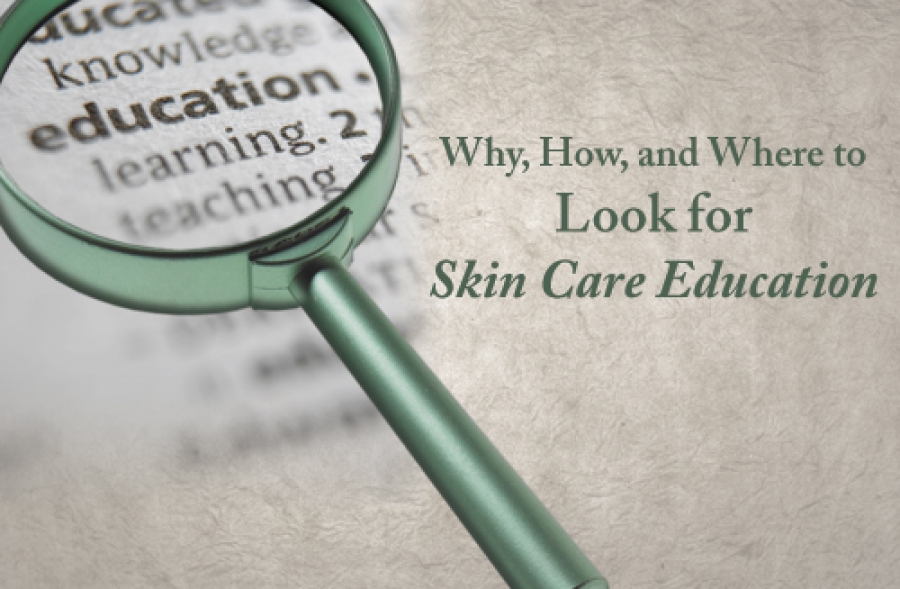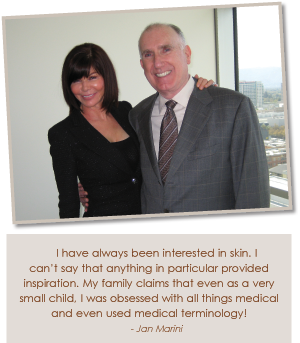Scope of Practice
Before you take a class or add a new service to your menu or products for retail, understand your scope of practice. Each state has different regulations. It is advisable to directly check with your State Board to confirm you will be able to practice what you are planning to study. Be aware that you may get confusing and sometimes conflicting information when you call, especially when new technology is involved; it is therefore advisable to research the information online and print the documents for your records and your insurance providers. While some distributors and manufacturers are well informed and have done the appropriate research, laws and regulations change often, and the burden is on you to check facts. Provide full disclosure to your insurance provider and obtain adequate coverage.
Credentials
Many in the aesthetic industry, particularly those who are just beginning their professional life, are confused by all the terminology they hear concerning credentials. The three main types of credentials and their definitions are as follows.
License: (as defined by Dictionary.com)
Formal permission from a governmental or other constituted authority to do something, as to carry on some business or profession.
To grant authoritative permission or license to.
Certificate: (as defined by Concise Oxford American Dictionary)
A document attesting a level of achievement in a course of study or training.
Accredit: (as defined by Concise Oxford American Dictionary)
(Of an official body) give authority or sanction to (someone or something) when recognized standards have been met.
To put these in the context of the aesthetic industry, a license is required in 49 states in order to legally practice skin care. The only state that doesn’t currently require a license is Connecticut. Of the 49 states that require licensing only two (Utah and Virginia) recognize a higher level of training (Master Esthetician) beyond the standard licensing, which in the majority of states is only 600 hours and in a few states is as low as 250 to 300 hours. Because the industry is in a constant state of change (new science, technology, ingredients, etc.) most associations, manufacturers/distributors, and schools have created additional education which you can take beyond your licensing hours. In other words licensing is mandatory in most states; whereas certification is voluntary. Nevertheless, continuing education (CE,) certification and accreditation are extremely important in advancing your knowledge and building your confidence as well as that of your clients in your ability to care for their skin care needs.
In selecting programs, classes, and trainings that you want to attend; be an informed decision maker. First and foremost have a thorough understanding of your scope of practice as outlined in your license. Regardless of training, do not cross beyond the bounds of your license. Primarily because it would be unethical to do so, secondly because the moment you step beyond that limit your liability insurance will not cover any incident that occurs as a consequence. Before you spend your time, energy, and money on a class, you want to make sure it is something you will be able to utilize. Learn as much as you can about the individual or institution offering the education. What are their background and credentials? Are they accredited or recognized in some manner to offer the course? Due diligence will go a long way here to help you filter through the reputable from the not so reputable offerings.
Unlike licensing and certification, which is focused on the individual; accreditation is focused on the educating body, be it a school or special training program. In other words a school, institute, university, etc. has met a certain set of parameters and has thereby been sanctioned by an official body. Not all aesthetic schools choose to get accreditation due to the costs and administrative burden. They may be licensed by the state.
Standards for the Future
Recently a number of organizations set up standards that will be used in the future thereby assisting states with licensing and CE standards.
States in the past had nowhere to turn to get guidance or standards. State regulators may not be well versed in what an aesthetician can and should do. Several state regulators created licensing requirements that may appear based on incomplete or incorrect information. In an attempt to protect the public, or by being influenced by powerful lobbies, some regulators have restricted aestheticians’ scope of practice in states such as Nevada where aestheticians can’t practice lymphatic drainage massage, except under doctor’s supervision; or in California where aestheticians can’t use needles to perform extractions of comedones; or in Virginia where aestheticians can’t use lasers; this limits aestheticians for ever. “ All devices are safe in the hands of a well trained person,” according to Judy Gulp, Dean of Students, NW Institute Of Esthetics, Eugene, Ore., “even a curling iron could be a hazardous weapon if not used properly. It is the same with peels.”
Continuing Education
Michelle D’Allaird, owner of Aesthetic Science Institute in NY said, “Aestheticians have to continue their education. Every day there are new products, procedures, equipment and ingredients… If we do not continue our education, we do not fulfill our obligation to our clients – and that obligation is to provide them with the best possible skin care options!”
Acquire a basic understanding of where the industry currently is and what knowledge and skills will benefit you.
. Before you take a CE class, go through this checklist: Is the information being taught in your scope of practice; will it help you achieve your professional or business goals; is the educator or the organization qualified, experienced, licensed, and certified? Have the educator/faculty disclosed conflicts of interest? Some other questions to ask before you sign up for a class concern the curriculum, the course outline, and the syllabus. Currently only six states require CEs in order to renew their license.
The Type of Education: New versus Time Tested
“The education to look for is not always the latest and greatest; the priority is to get a good foundation in anatomy, physiology, and the core services such as facials. Don’t be embarrassed to get back to learn basics if you feel your education is not solid enough or need a refresher ”says Suzanne Warfield, publisher of PCI Journal. Dr. Howard Murad, Associate Clinical Professor of Medicine at UCLA, believes in the philosophy that education is like everything else in the world – it is constantly changing and evolving. Education for aestheticians has to mirror what is offered in the health care industry. He regards aestheticians as health care providers and expects them to know about nutrition and breakthrough in ingredients technology at a basic level.“ Online courses are alternative ways to university education; because one cannot expect an aesthetician to take years off from work to attend university. Even with a medical degree, I cannot rely only on what I learned in medical school, but must seek new knowledge.”
Free Classes at Trade Shows and General Sessions
Manufacturer’s classes are exhibitor sponsored education: It is understood that a company offers free education involving products information and sales. It is convenient and cost effective for aestheticians to attend a trade show and take classes at the same venue.
This education does not replace CEs. The confusion may have been caused because of the history of the profession in North America. In the past 30 years, manufacturers have offered CEs and even basic education because few skin care specific programs/schools existed for years, when several states had no aesthetics license. Together manufacturers/distributors, and aestheticians worked in partnership to create the industry we know today. As the industry and demand for skin care grew, more and better schools opened offering higher standards of education. Manufacturer’s classes still have their place as they introduce their products and devices, and explain their competitive advantage versus other brands. They combine business education, sales, and marketing techniques for aestheticians to better position their offerings in the market place.
Some manufacturers employ highly qualified educators who provide good education – for free – while promoting a product. If you do not know an educator’s reputation and qualifications, you are at risk of getting inaccurate information, or worse, by trying to save money, according to Judy Culp, “you get what you paid for; you may think you know how to do a treatment – such as a peel – only to run into disaster if you use the product specific information with a another brand. One brand may apply 10 layers of a peel, while another applies two or three. The same goes with devices. At best you may not achieve the results you touted, and damage your credibility with your clients. Doctors and nurses pay for their education; aestheticians must invest in themselves to become successful.”
A General Session is offered by the producers of the trade show. The information presented is usually a mix of fundamental, advanced, and trendy topics. Educators are selected based on their area of expertise to present non-brand specific information that is beneficial regardless of the product line you employ.
Online Education
Webinars and CEs online are in high demand. CEs require reading, taking a test, and sending in the exam to get credit. Even the best universities use those educational vehicles. Webinars offer cost effective education, giving access to anyone, anywhere in the world, to a live session – sometimes interactive or followed by Q&A time, or the flexibility to listen and view a pre-registered presentation online 24/7. According to Marti Morenings, Founder of Universal Companies,“continuing education enables aestheticians’ financial success – “clients who are confident their practitioner is up on current trends will tend to come more often, and will also feel more comfortable receiving retail recommendations. As with anything you spend your money or your time on, it is recommended you look for reliable resources. Unfortunately, in this day and time, anyone can offer education via the Internet and it is for the most part unregulated.”
“Block Programs” for Advanced Education
For in-depth education on a particular segment of the skin care profession or specialty, block programs covering 40 to 80 hours of classroom and hands-on education held in a licensed school provide enough knowledge to change an aesthetician’s career path for the better and substantially increase income. Those block programs take a week to 10 days and are modeled after the Executive Block Programs offered by Business Schools of Ivy League Universities. Students prepare for the course prior to attending and take an exam the last day of the course to earn their diploma. According to Judiann Monaghan of E-Elite Academy, Esthetic & Massage Career Disciplines, in Dunedin, Fla., aestheticians who want to work with doctors need training not only to learn about the unique services, but to read charts and properly communicate with medical practitioners.”
Professional Organizations and Mentors
Continuing education is more than just attending classes or trade shows a few times a year. To stay connected, it is important to be an active member of professional associations. If you are just starting in your aesthetics career, membership in a professional association can provide you with invaluable resources and networking opportunities. The benefit of being involved if you are an experienced aesthetician is the opportunity to pass your knowledge on to the next generation. Being a teacher/mentor is both rewarding and educational in its’ own right. Patricia Strunk, Associate Publisher of DERMASCOPE Magazine, puts it this way: “we don’t know it all; we must ask questions, and meet others, because those relationships lead to finding mentors. Utilize what you hear, read, and see. It may not be exactly what your business needs, but it will help your perspective and lead to information that will build your technical and business knowledge.”
The Business of Skin Care
Most aestheticians do not take into consideration business classes as part of their CEs. They are driven by their passion to help their clients and see results. Running a business requires you identify your financial goals and create a road map that then becomes the basis of your business plan. As an aesthetician and a business owner, investing in continuing education must include business classes such as the ones offered at community colleges and some aesthetic schools. Local networking with business organizations or online networking platforms build strong networks and support systems while sharpening your business acumen.
Catherine Atzen is a Business Consultant, a Skin Care and Spa Expert based in CA. She can be reached at This email address is being protected from spambots. You need JavaScript enabled to view it.. She holds MBAs from the Haas School of Business, UC California, Berkeley, and from Columbia University, NY, a CIDESCO diploma, and is NCEA Certified. She is a Member of Phi Kappa Phi Academic Honor Society, has earned 18 industry awards, and is credited with coining the term ‘Day Spa.’ She developed the ATZEN skin care line and Lymphobiology® lymphatic drainage device distributed by Universal Companies.






 Those who know Jan Marini refer to her as a visionary. While Jan might agree in principle, she sees this characterization as both a strength and a weakness. She envies those who are able to savor the moment. Where others view life in snapshots that capture real time, Jan sees broad borderless landscapes and endless possibilities. She does not see a product, she sees a business and in that same instance her mind is flooded with the business plan and all the accompanying details. Even when she is not envisioning empires, she is never satisfied with the status quo.
Those who know Jan Marini refer to her as a visionary. While Jan might agree in principle, she sees this characterization as both a strength and a weakness. She envies those who are able to savor the moment. Where others view life in snapshots that capture real time, Jan sees broad borderless landscapes and endless possibilities. She does not see a product, she sees a business and in that same instance her mind is flooded with the business plan and all the accompanying details. Even when she is not envisioning empires, she is never satisfied with the status quo.